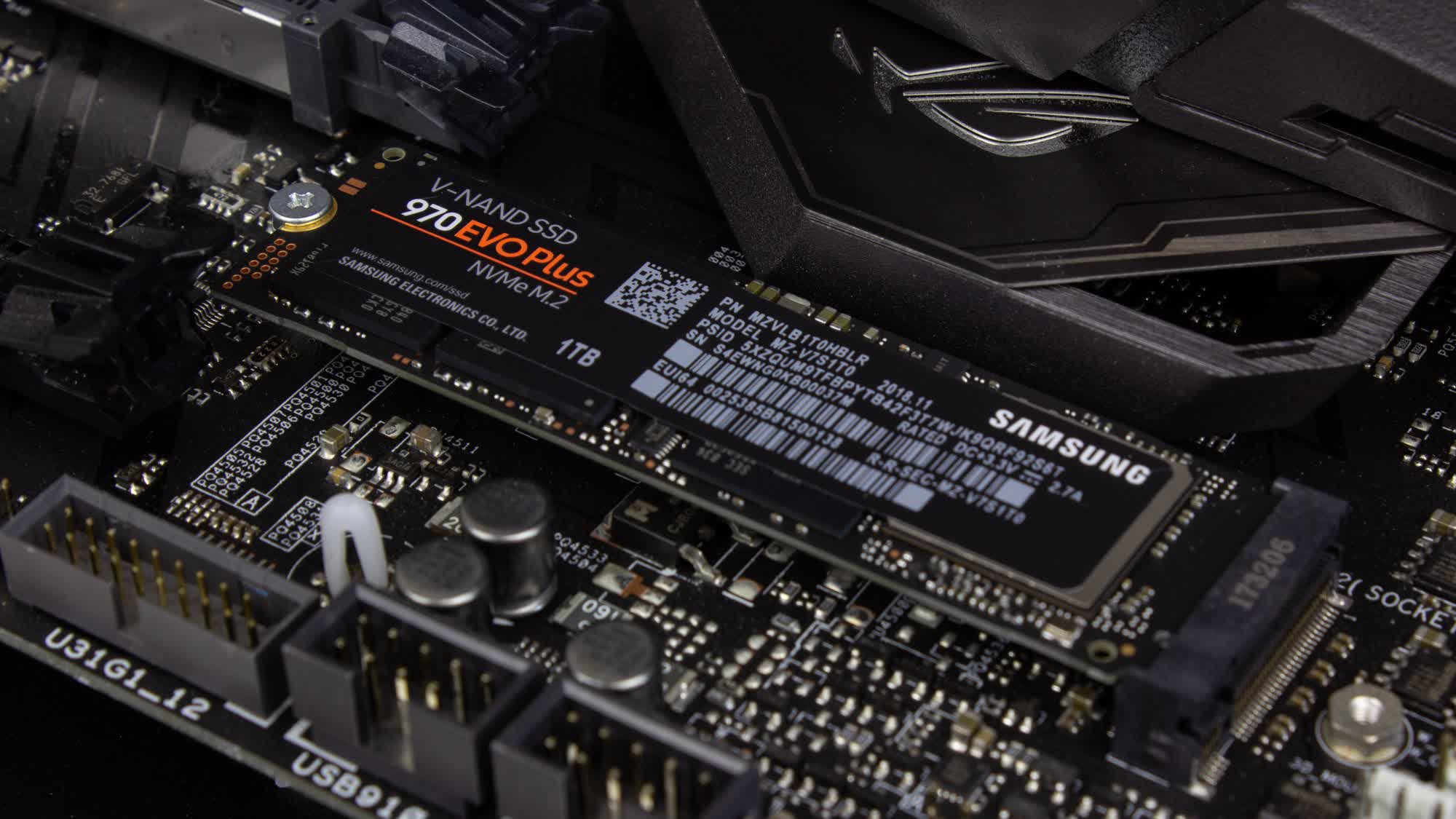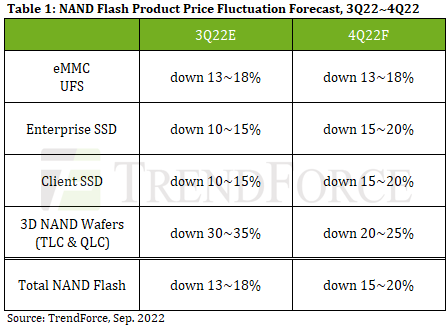In brief: Solid-state drive prices have been dropping due to NAND oversupply for months. The trend looks particularly severe moving towards the end of 2022, and the latest reports indicate it won't let up. This year's holiday season may be an excellent time to upgrade if you're looking for a PCIe 4.0 SSD.

A new report from analysts at TrendForce suggests NAND flash prices will drop by 15-20 percent in Q4 2022, likely dragging down SSD prices. Prices could bottom out around the end of this year, but the picture going into 2023 is unclear.
Solid-state storage is only one computer component facing price pressure in this year's post-pandemic economy. Manufacturers struggled to keep up with increased demand in 2020 and 2021, and those efforts led to oversupply in 2022. Graphics cards, PCs, and other devices have seen demand fall recently due to economic uncertainty, causing vendors to slash prices to clear inventory.
Despite the weak market, companies like SK Hynix and Kioxia are bringing new products to the sector, increasing price competition. Price pressure due to increased shipments in the face of falling demand is already hitting 176-layer NAND and PCIe 4.0 SSDs, particularly 512GB drives. A similar trend faces enterprise SSDs.

Other devices like TVs, Chromebooks, and smartphones have also seen their sales fall recently, putting pressure on the eMMC and UFS markets. Analysts project both storage types to see prices drop by 13-18 percent in Q4.
The need for most storage types is so exhausted that 3D NAND prices dipped by 30 to 35 percent in Q3. Projections for Q4 are rather bleak as well, with analysts predicting another 20- to 25-percent drop. This trend threatens to put most NAND manufacturers into the red as they begin selling wafers at a loss.
The analysis only extends to the end of 2022, but it isn't clear whether prices will start to recover in early 2023. Fears of a recession early next year are making market forecasts pessimistic.
Graphics cards and SSD prices have been falling for a while, and new generations of CPUs and GPUs are coming from all major vendors this fall. However, it may be prudent to see how the GPU price war plays out between Nvidia's new Ada Lovelace line and AMD's upcoming RDNA3 over the next several months. If you're angling to upgrade or build a PC soon, late 2022 might be a great time to buy if prices don't slip further afterward.
https://www.techspot.com/news/96122-ssd-price-slump-shows-no-end-sight.html